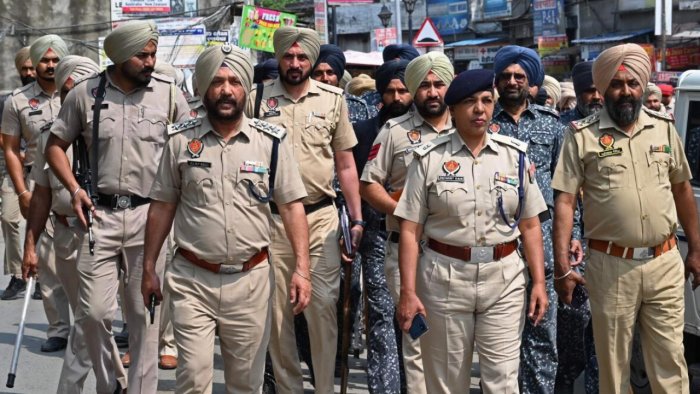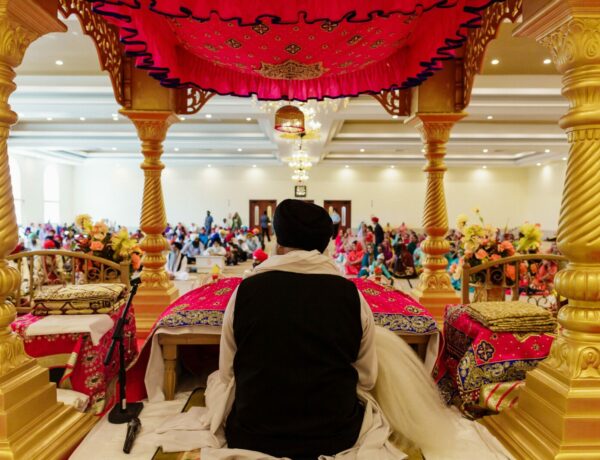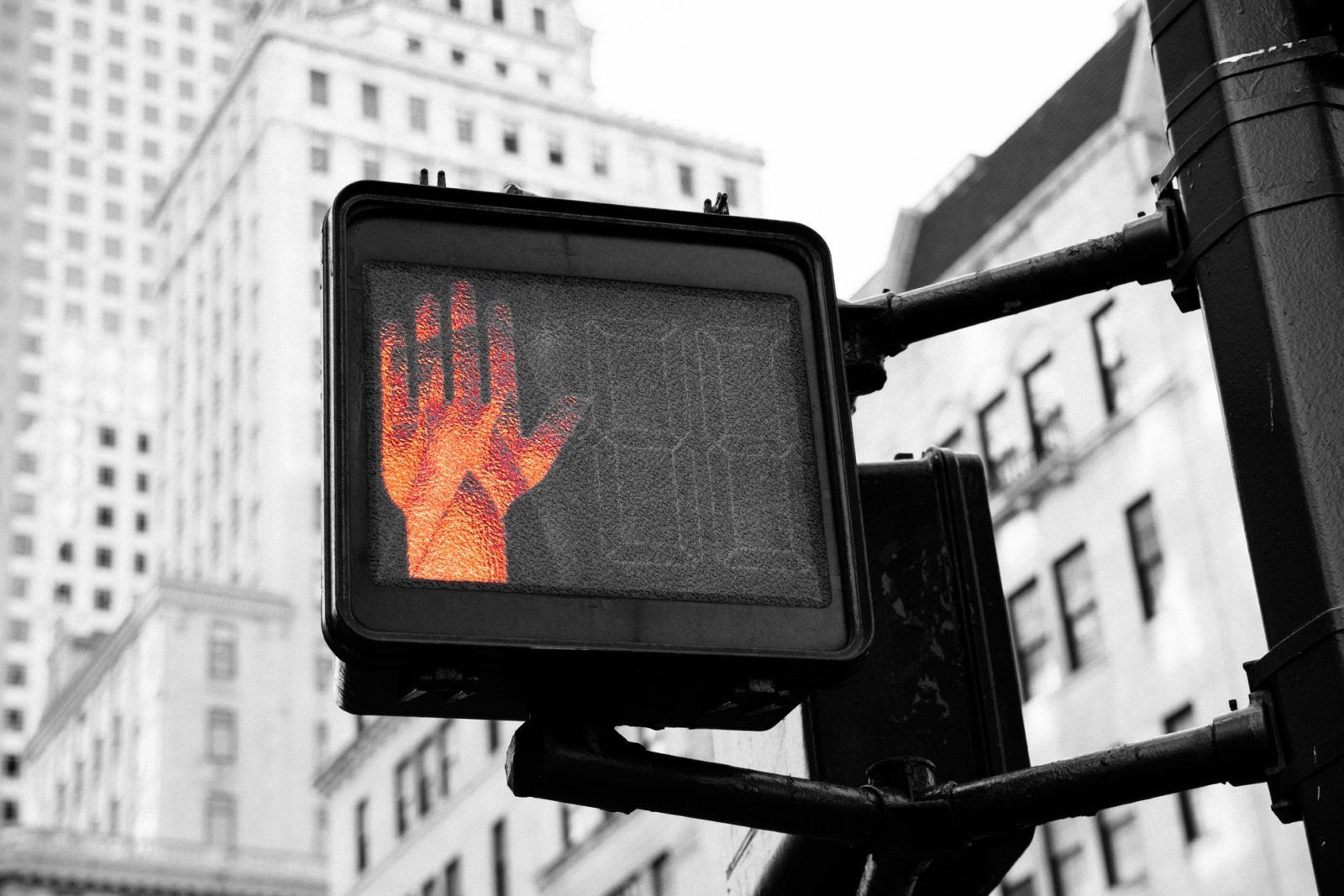What’s happening in Punjab, India?
Over the weekend of March 18, 2023, Indian authorities executed massive mobilizations of paramilitary and police forces, conducted multiple coordinated arrests, imposed mobile internet data blackouts, blocked SMS services, censored media, and disproportionately targeted Sikhs and political dissenters across Punjab, (Sikh Coalition).
While details around the current round of arrests and repressions are unclear, recent announcements suggest mobile internet data will continue to be blocked in significant areas of Punjab through at least March 23, severely impacting individuals and businesses that rely on such services, (Sikh Coalition).
In addition to restrictions on information flow, sources have reported that authorities arrested over one hundred individuals over the weekend. Reports also indicate an escalation in police brutality and additional arrests on March 21, (Sikh Coalition).
Why is this Happening?
Indian authorities conducted massive arrests while implementing restrictions of public movement and communication in response to Waris Punjab De leader Amritpal Singh’s Sikh Rights movement building momentum in Punjab which coincided with the Quami Insaaf Morcha.
Who is Amritpal Singh?
Amritpal Singh is the leader of Waris Punjab De; Amritpal Singh’s supporters say he’s trying to revive Sikhi in part, by working against the drug-abuse epidemic amongst Punjabi youth with Gurmat. His critics accuse him of trying to destabilize Punjab with “anti-national sentiments” by advocating for Khalistan – a separate Sikh homeland.
Waris Punjab De (“Heirs of Punjab”) is an organization that fights for the rights of Punjab.
What are the Charges Against Amritpal Singh?
The police have invoked the National Security Act (NSA) and the Arms Act against Amritpal Singh and his associates. On March 18, a non-bailable warrant was issued against Amritpal Singh, as noted by Punjab Inspector General of Police (IGP), Sukhchain Singh Gill.
The National Security Act of 1980 is an act of the Indian Parliament which gives the Central Government and State Governments the power to detain a person to prevent them from harming: a) the security of India, b) India’s international relations c) public order, and d) essential community supplies and services. As per a 1993 report 72.3% of the 3,783 people arrested under the law were later released due to lack of evidence.
The police say Amritpal Singh and his associates have been charged with offenses such as disturbing the peace, hate speech, attempted murder, attack on police personnel, interfering and obstructing public servants from their duties, trespassing with criminal intent, wrongful confinement, and arms possessions, among others. You can view the First Information Reports (FIR) which lead to the charges here.
The information given to a police officer and reduced to writing is known as the “First Information” and the corresponding report is a “First Information Report” (FIR).
Who has been Arrested?
The week of March 20, Punjab Police interrogated Amritpal Singh’s wife Kirandeep Kaur and mother Balwinder Kaur at his native village of Jallupur Khera. They were not arrested.
Amnesty International India and Sikh Coalition report a larger number of mass arrests. Several of Amritpal Singh’s associates have been arrested and several were sent to a prison in the north-eastern state of Assam.
Has Amritpal Singh Been Arrested?
As of publication, the Punjab Police officially state that Amritpal Singh has not been arrested and is still on the run, evading arrest.
Free5Ab on Instagram has outlined 3 possible scenarios for Amritpal Singh:
- Arrested/Killed/Disappeared: The Indian State may have arrested, tortured, and/or killed Amritpal Singh and are claiming he has not been caught to give them plausible deniability.
- Escaped & currently safe.
- Escaped but caught/disappeared: If Amritpal Singh escaped and was/is caught, he will be disappeared and the Indian State’s official statement will forever remain, “he is missing”.
Human Rights Abuses and Draconian Laws
In a recent letter to United States Secretary Blinken, Sikh Coalition expressed its concern for India’s human rights abuses against Sikhs:
“The past few days have seen escalating human rights abuses against Sikhs in Punjab. Democratic norms and human rights in Punjab have been suspended. The Indian government is violating civil liberties and human rights of political dissenters, removed information access and media for all Punjab regardless of political affiliation, and have implemented wide reaching laws and paramilitary presence to create a general atmosphere of distrust and fear in the public. This further exacerbates concerns around the lack of due process afforded to the scores of Sikh arrestees and detainees. These actions not only contradict human rights freedoms but also risk exacerbating civil unrest, limiting freedom of expression, and alienating a religious minority community.”
Unfortunately, while unethical and contrary to international human rights norms, many of Punjab Polices’ actions are legal within India’s framework. For instance, The National Security Act (NSA) allows for the detention of a person without charge for a year and, this year can be extended if “fresh evidence” is presented by the government. These individuals are not allowed lawyers during their court appearance The World Sikh Organization writes that, “A striking feature of the Act is that the Indian Government can detain a person for as long as it wishes to. Section 5 of the Act empowers the government to regulate the place and conditions of detention, enabling it to shift a detainee from one place to another anywhere in the country”. Under Section 16, the NSA give blanket immunity to the government and it cannot be legally challenged for any act intended to be in good faith in pursuance of the Act.
Impact on Women
Decreased Public Movement and Freedom for Women and Girls
Given heightened militarism and increased number of armed men in Punjab, some families might curb the movements and rights of their girl children out of concern for their safety.
While not reported or documented, some families and parents might be remembering the events of the 1980s, further informing their decisions to possibly limit their girl children’s public activities. (For instance in the 1980s, Sikhi Wiki writes, the Indian army and police raped Sikh women to force the surrender of Singh fighters who were their relatives, and also as a means of humiliating families, even whole villages. Often Sikh women arrested with their husbands, were raped while their husbands were forced to watch – as an interrogation tool and/orin an attempt to force confessions).
Risk & Disparity: Furthermore, internet & cell phone shutdown is known to exacerbate gender inequality and injustice. Its disruption can further widen the gender digital divide, deepen existing inequality, and hobble women’s economic development. It is also important to note that without these tools of communication, many people can become more isolated which is worst for the most vulnerable populations, including women and girls who already may be in difficult or even dangerous situations (ie: domestic violence).
Increased home-economic responsibilities: In the Farmers Protest and the Quami Insaaf Morcha, many activist roles fell primarily along gender roles (with exceptions): men protested on the streets in public, while at home in private, women cooked, cleaned, managed income streams, and took care of children (though, some did so at public protest sites). When Singhs are arrested or go into hiding, Kaurs are often left behind to not only take care of their typical domestic duties, but also manage household economics and finances; thus their workload doubles.
Why Are So Many Sikhs Skeptical of the Official Story?
The fears of many Sikhs in Punjab and the diaspora are not unfounded as media censorship accompanied genocidal violence inflicted upon Sikhs in 1984 writes, Sikh Coalition.
More recently, there has been a decline in press freedom, coinciding with increased censorship and arrests of journalists and threats against social media executives. The Indian government has previously charged several journalists who documented the police violence in the Farmers’ Protests. India-based employees at Facebook, WhatsApp, and Twitter were also threatened with fines and prison time for failing to immediately censor and remove social media content which criticized the Indian government for these restrictions, (Sikh Coalition).
When journalists, advocates, and nonprofits covering events in India are silenced, only the “official” state-sponsored narrative is perpetuated, making it difficult to parse out the truth.
There are two reasons Sikhs are often skeptical of India’s official reporting:
1. India ranks poorly for civil, political, and human rights according to Freedom House, Amnesty International, World Justice Project, Human Rights Watch.
2. Historically, there has been a discrepancy between Indian official reports and independent human rights organization reports in regards to human rights abuses. For instance:
- During the Battle of Amritsar in 1984 (aka Operation Bluestar) the Indian Government claimed that 675 people were killed or injured during but, other reports estimated that somewhere between 10,000 to 100,000 people were killed (Kaur, 2004).
- During the anti-Sikh violence of November 1984, the Indian Government reported that 2,800 Sikhs were killed in Delhi and 3,350 nationwide, while independent sources estimate the number of deaths at about 8,000–30,000 Sikhs were killed. The Government estimated that 20,000 Sikhs were displaced and made homeless in Delhi while independent sources estimate 50,000 Sikhs were displaced, (Kaur, 2004).
- In the 1990s, the Indian Government claimed many Sikhs activists and Khalistanis “disappeared” or fled to Pakistan. On the contrary, human rights activist Jaswant Singh Khalra discovered 25,000 unidentified bodies in Punjab in mass graves; people whom he believed were killed by the police in extra-judicial killings.
What You Can Do
- Share & discuss this with your friends and family.
- Reach out to your family in Punjab and understand their perspective.
- Write to your representatives urging them to denounce these injustices.
- To help you contextualize current events, learn more about Punjab and Sikh history.
Main photo:
Police and security personnel patrol in Amritpal Singh’s village of Jallupur Khera, about 45 km from Amritsar. Credit: PTI Photo.




